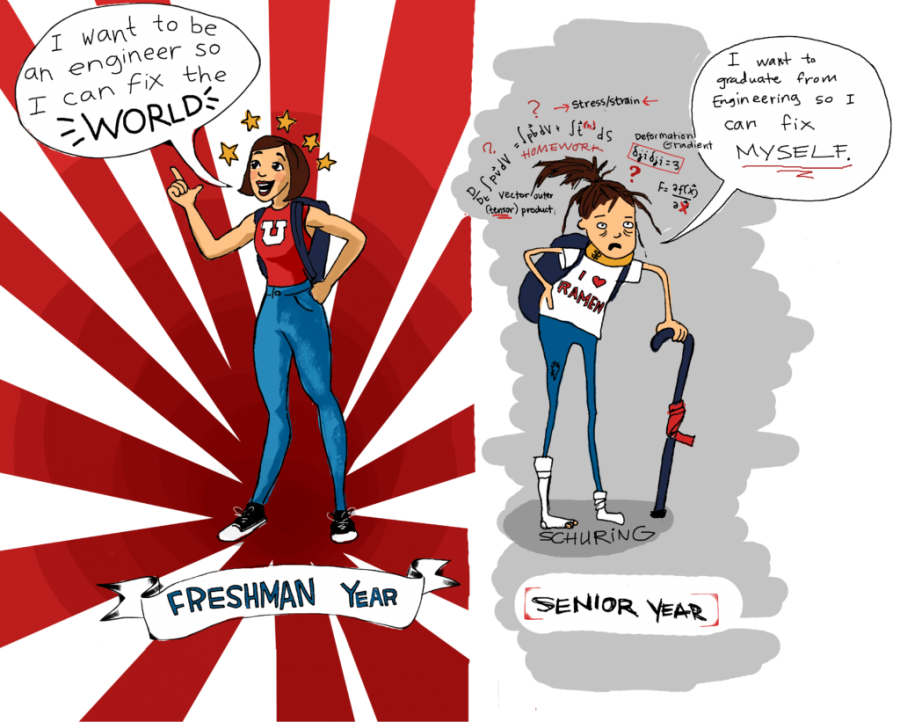Exhaustion is too light a word for how I’ve been feeling this semester. Between five classes, two jobs and one internship (not to mention social life, gym, personal relaxation and maybe some sleep if I have time to spare), life has been nonstop. I’ve been up past midnight for the last two weeks, and as a person who needs eight to 10 hours of sleep per night, that’s just not enough.
It’s not an exaggeration to say that I’ve bit off more than I can chew, and I’m not the only one. Friends and classmates have said the same thing, complaining about how continuously tired they are and how much they have to do. College students are consistently up late at night scrambling to get everything done.
It seems simple at first glance. Learn to manage your time better, work more efficiently, develop better study habits. This can all help, but the situation is much more complicated than it appears. These strategies aren’t always enough and blame is placed unfairly on students when they can’t perform up to unrealistic standards.
College culture puts immense pressure on people to be nothing short of incredible. There are necessities like food, rent and tuition, but we’re burdened with the strain to go above and beyond. The list of what you have to take on to be “successful” in college is endless.
Get straight A’s, have internships, volunteer, build resumes, get involved in campus clubs and more. Without these experiences and credentials, we’ve “wasted our college experiences” by not reaping all the benefits. We’re told that life after graduation will be more difficult as we search for jobs or graduate schools. If one doesn’t subscribe to these expectations, they’re shamed to the point where internal guilt takes hold.
When someone is constantly busy and doesn’t have enough time for themselves, they cannot escape from the huge amounts of stress experienced in daily life. This enormous pressure to do everything is harmful to mental, emotional and even physical health. College students experience high rates of mental illness, particularly depression and anxiety. The college culture of forced overachievement is a large contributing stressor that exacerbates symptoms or triggers them in the first place.
Stress can also cause physical injury. People react to stress in different ways. Some get headaches or migraines. Huge knots and tension can form. Some undereat or overeat and gain or lose weight rapidly. Some end up sleeping far too much or too little.
College culture needs to switch to a practical approach to success. Pushing students past their limits is damaging and the truth is that it will only grow worse with time.
This is hard to change and it may take a long time. Meanwhile, be kind to yourself and others. Recognize your limits and work with yourself to do your best without going overboard. Take time to relax. Go to the movies. Take an art class. Find a hobby. Take care of yourself and of your health because nobody can be successful long-term if they’re falling apart.



vinay • Jan 5, 2021 at 12:53 am
Hii Shaelyn Barber,
I came here to search for the meaning of “detrimental” and here I gained a lot more information which is based on that topic. Thanks for giving your valuable time to explain the pressure.